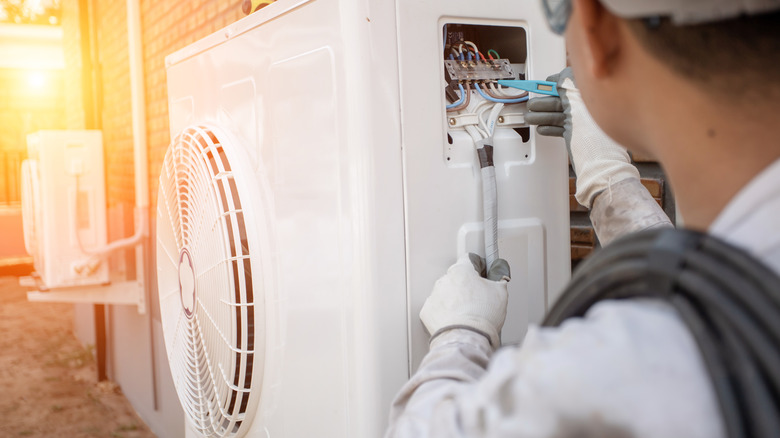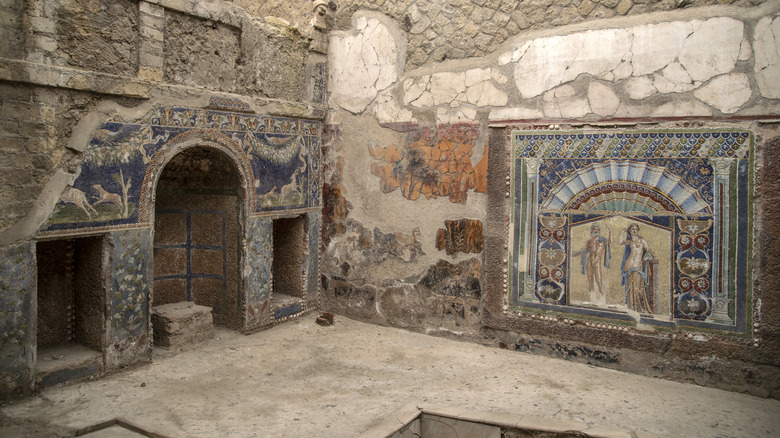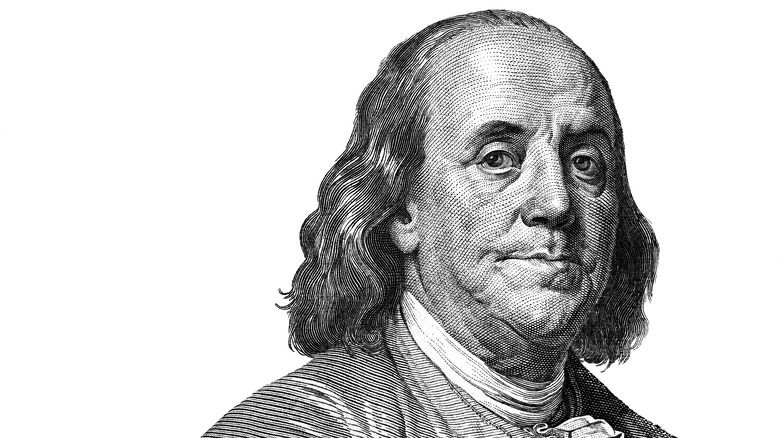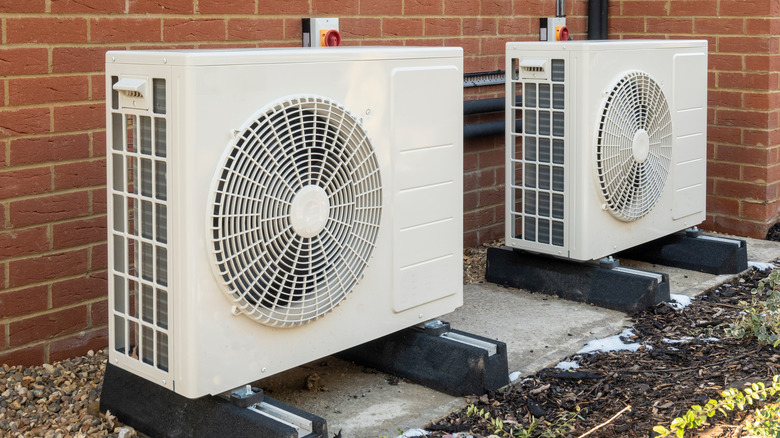Who Invented Air Conditioning?
These days, air conditioning is considered a necessity by many. As The Guardian reports, deadly heat is responsible for hundreds of deaths in the United States each year, and often the victims either didn't have air conditioning in their homes, or didn't use it. The problem is so widespread that some public and financial assistance programs exist to help with paying for cooling bills.
Yet a century ago, air conditioning was a luxury available to few. According to WFPL, one of the reasons the movie industry exists is because there was a time when the only air-conditioned buildings were movie theaters. Hot and sweaty Americans paid a couple of coins to sit in comfort for a couple of hours — and perhaps take in a flick while they were at it.
And while history has given most of the credit to "inventing" air conditioning to one man — his name may very well appear on the appliance in your home — his invention was built on earlier work by others. In fact, humans have been using the basic scientific principles that form the basis of modern air conditioning systems for millennia, albeit crudely.
The ancient Egyptians and Romans had half of the equation
Modern air conditioning systems work by maintaining two processes in concert with each other, according to manufacturer Carrier. One system sucks hot and humid air out of your home and blows it outside, while another system blows air over pipes containing a cooled liquid, filling the room with cooled air.
The ancient Egyptians had the second part of that equation figured out millennia ago. According to Live Science, they would hang a wet mat at their doorway, and the evaporating water would reduce the air temperature indoors. Some modern air conditioners work on the ancient Egyptian principle: swamp coolers, as they're known, are modern versions of the Egyptian model, although their utility as an air conditioning system is limited, as How Stuff Works explains, particularly in humid environments. Centuries after the ancient Egyptians, the ancient Romans took things a step further, using their knowledge of plumbing to send cooled water across pipes in their homes — which worked, but only to a point.
Benjamin Franklin worked on it, too
Over the centuries, our knowledge of science and chemistry expanded, and by the middle 1700s, various scientists and tinkerers were hitting upon the idea that certain chemicals could be manipulated in certain ways to produce cooling effects. None other than founding father Benjamin Franklin experimented with this process, according to Lane Heating & Air Conditioning. Using various combinations, Franklin and his collaborators were able to cool a mercury thermometer down to 25 degrees below freezing, causing Franklin to reportedly remark that the day would come when it would be possible for a person to freeze to death on a warm summer's day, according to Live Science.
Half a century later and across The Pond, British inventor Michael Faraday learned that compressing and liquefying ammonia could produce a cooling effect that reduced the temperature in his lab, according to Popular Mechanics. Meanwhile, over in Florida, Dr. John Gorrie created a machine that made ice and then blew air over it in order to cool down his patients.
Willis Carrier carries the ball across the finish line
Although he built on earlier work by others, and though he relied on a scientific principle that had been understood for centuries, the man who is credited with inventing air conditioning as we know it is Willis Carrier, as Live Science explains. In 1902, the managers of the Sackett-Wilhelms Lithographing and Publishing Company in Brooklyn noticed that the heat and humidity were wreaking havoc on their machinery. Enter an engineer named Willis Carrier. As PBS explains, Carrier developed a machine that filtered out ambient air while at the same time blowing air over cooled pipes, cooling the print shop to the point that their machinery could function during the summer — and delighting the employees who worked in the now-cooled building. For whatever it's worth, it bears noting that Carrier's invention was intended to cool machinery, not people; that it cooled the people who used that machinery was an added benefit.
Carrier filed a patent, and to this day, machines bearing his name are ubiquitous in the HVAC industry. Your home or office may very well be cooled by a device bearing the name of the company he created.



